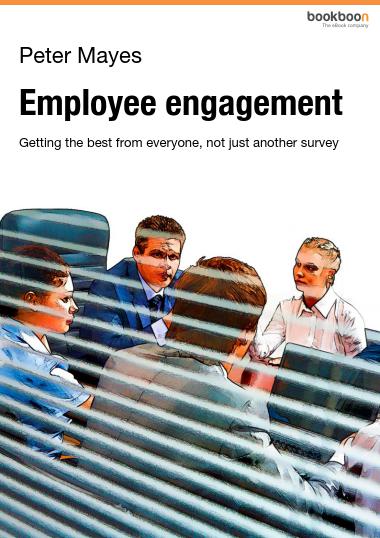Employer Branding: Why employee engagement is important for any business

In this e-book, Christina Evans skillfully guides us through the most important aspects of employee engagement, from past to present. Christina teaches and researches in human resource management and points out why employee engagement is important in every company’s employer branding strategy. Her main focus is individual career development and organizational approaches aimed at building a diverse workforce. Employee engagement has become a hot management topic, especially in businesses where organizational performance is dependent on this, such as in the knowledge and service industry.
The not so secret way to success
Whenever employee behavior can have a direct influence on how customers act, and with particular regards to brand reputation, employee engagement is essential. For example, take in to account the battered brand reputation of certain financial firms, after the recession. Companies who wish to re-build trust amongst employees and customers, should invest in employee management. As with nearly any concept, some of those in the academic community remain skeptical. Consultancies however are positively attuned to, and upbeat about employee engagement solutions. It is not a coincidence it is a well-established and trusted concept for professionals.
Tried, tested and approved
There is no perfect recipe, or “one-size fits all”, and those who argue against employee engagement critique the notion of universalism. Why is that negative though? The concept is adaptable to pretty much any business. It is current yet old and therefore to deem it universal isn’t necessarily a bad thing. Put simply, employee engagement is just as likely to be a priority in public sector organizations, such as education or local government, as in the private sector. After all, a devoted, honest and inspiring employee will have the best opportunity to secure happy and loyal customers.
What’s on offer?
Employee engagement has understandably become big business. Therefore, numerous solutions are promoted at conferences. The concepts underpinning the current models are not new. They are based on existing concepts from the fields of psychology and organizational studies. Although there are those who criticize this as being “old wine in new bottles”, why change something that works? Here are some examples of focus areas:
- Employee motivation and satisfaction
- Perceived organizational support
- Organizational commitment
- Employee involvement and participation
- Organizational and job design
- Social exchange theory
Why you should move employee engagement up your managerial agenda
HR professionals, as most professionals, are under scrutiny to constantly deliver and add value to the business. This can tempt some to seek out the quickest and easiest solution when faced with organizational issues. Curiosity is indeed recommended to keep you sharp, and you should always seek to challenge the field. This “book-ett” as the author puts it, wants to encourage these behaviors, and stimulate a broader perspective on employee engagement.




